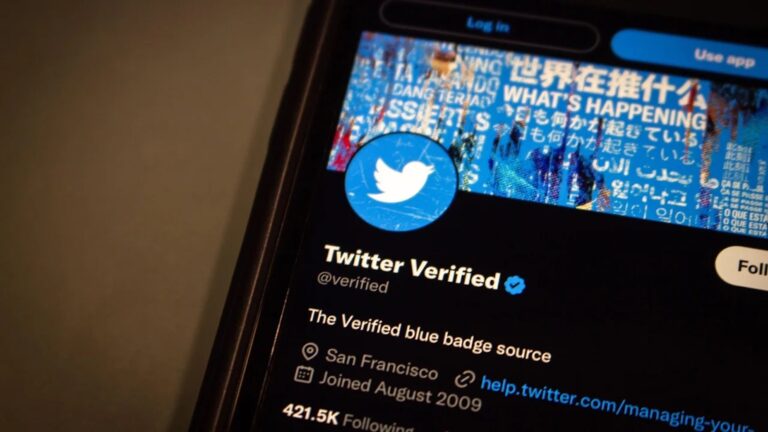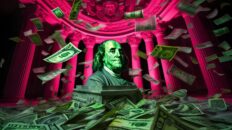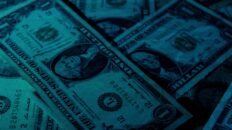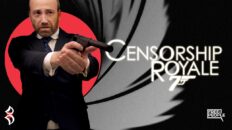Forgive me, Master Musk, for I have sinned. (Is it possible to “sin” against a transhumanist? Perhaps it’s more accurate to say I offended his outsized ambition.)
Apologies anyway, Overlord Musk, for discounting your ability to “improve” Twitter. “Improve” meaning loosening the moderation yoke that disproportionately choked too many voices on my ideological side. I didn’t think you’d let the platform crash and burn like one of your phallistic-fantasy Space X crafts—though you came daringly close a few times. My doubt was in your—anyone’s really—ability to evolve Larry into a real free-speech songbird. That was never going to happen. But you’ve managed something even better: injected chaos into the platform’s user hierarchy, muddling the rules and distinctions between the Twitter tower and the mass of square-stuck plebeians.
Bravo! BRAVO! BRAVISSIMO!
The whole blue-check cockup has been more entertaining than watching Donald Trump steamroll the 2016 Republican primary field of empty, sloganeering suits. There’s never a better time than watching society’s status-snobs come under the capricious whim of someone even more status-savoring.
The backstory is simple: it’s Elon Musk. What’s that, Mr. Editor? The readers need more explication? Whyever? Because not everyone knows his intentions? Well, I don’t think anyone other than the producers of Risperidone understand Elon’s thinking, but I’ll give it a shot.
Like any bluebird watcher over the past decade, Musk found Twitter’s formal recognition protocol unfair and elitist. Not to mention humorless. So upon blowing a few billion bucks for the Bay Area company, he incited an inside revolution: firing thousands of layabout staff, conducting a deep dive into the backend programming, and leveling the verification system.
Imagine that: a billionaire internet egalitarian. We haven’t had that spirit here since 1999!
It doesn’t really matter if Musk’s motivations were altruistic, democratic, and just plain trolling. He did as all hare-brained, fat-pocketed investors do, intruding, inquiring, fiddling, fussing, meddling, minding, and trying to turn over a dollar. But Twitter wasn’t any other company—it is, as Walter Kirn describes it, an “oracle of the establishment.” And Musk wasn’t your typical green-eyed equity infuser, simply wanting to smash pension seniority tiers to wring out higher shareholder payouts. This was Goliath versus Goliath. The wealthiest wag in the world vs. the most annoying brats on earth. A business titan trying to full-nelson the most significant information purveyor in the world.
It was bound to get deliciously ugly, like a daytime soap full of backstabbers.
Musk was kicking a hornet’s nest of self-styled queen bees. His opening the app’s hood for a bunch of heterodox journalists to run diagnostics on banning practices while uncovering brazen government manipulation was one thing—a big thing, in fact, as Ron Paul pointed out, the move dispelled the fiction that Twitter operates as a “private company” and not a Washington proxy. But that revelation was only of interest to libertarian nerds who still contest the constitutionality of FDR’s 1933 bank holiday.
Musk didn’t really muck it up until he started tweaking the power symbol that was Twitter’s driving force: the infamous bluetick.
He struck the familiar check from every user with <1,000,000 followers, then slapped a $8 fee on anyone who ever wanted the same credential as The Tuscaloosa News’s waste-management reporter.
The uproar, like everything else on Twitter, was shrill and short-lived. Formerly verified users obstinately refused to hand over the equivalent of a monthly Hulu subscription for the blue badge of honor. Popular accounts—the million-follower types—both decried their unchecked status before insisting they weren’t comping Musk after being re-verified. Then, predictably, a bunch of rightie accounts ponied up for the tick, proving an iron law of politics: conservatives are jealous of and secretly desire the left’s level of influence.
Reporter and Twitter creature Dave Weigel summed up the outrage cycle as “the biggest waste of time and mental energy I’ve ever seen a crowd engage in” before admitting “[s]ure, I joined that crowd a few times.” (I assume he also dug his dirty shoes into Charlie Murphy’s couch.) But why would a bunch of established journalists throw a tizzy over something so minor as a message-board emoji? One word: ego.
Ed West says Twitter elites—composed mostly of the media class—practicing the Italian art of sprezzatura—the put-on of not caring when you do, in fact, greatly care. They desperately wish to appear as having concern to burn. Today’s press stringers can break a story of a US senator siphoning campaign funds off to pay for furry-fetish BDSM prostitutes, be booked for the full Ginsburg, receive a Pulitzer Prize nomination, but, in the end, spend hours with their neck craned over their glowing device, adding up their retweets.
Twitter verification boosts visibility on the platform, and losing that pride of place among your peers is a quiet humiliation. The only recourse for demoted journos who treasured their blue marking was, ironically enough, to fire off some angry tweets.
For the fourth-estate heartache alone, Musk deserves thanks. Twitter isn’t real life for three-quarters of Americans who’ve never composed a tweet in their life. But it’s very, very real for a profession more tabloidish than truth-telling. A piece of humble pie was due in their Twitter-clout diet—especially before the servile bachanalia of the White House correspondents’ dinner. Think of how many media pratfalls like Russiagate could have been avoided if virality and access hadn’t become the essential tools of journalism.














[…] give him an earful over making Twitter a dysfunctional mess. Then I’d thank him profusely for ruining the journo class’s favorite plaything. Only after that would I hear him out on why Tim Scott can heal our nation’s racial and moral […]
You got one of Logan Albright’s homilies on “our audience”? Hahahahahahaha!